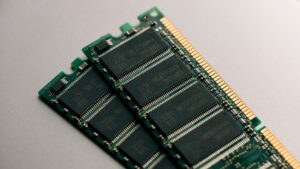Exploring the Intricacies of Short-Term and Long-Term Memory
Memory is a fundamental cognitive function that plays a pivotal role in how we learn, navigate our daily lives, and form our identities. Within the vast landscape of memory, two distinct but interconnected types stand out: short-term memory and long-term memory. These memory systems serve different purposes and exhibit varying characteristics, contributing to our ability to store and retrieve information.
The Basics of Short-Term Memory
Short-term memory, often referred to as working memory, is the cognitive system responsible for temporarily holding and manipulating information that is immediately relevant to ongoing tasks or thoughts. This form of memory enables us to retain a limited amount of information for a short duration, usually in the range of seconds to minutes.
Capacity and Duration: Short-term memory has a limited capacity, typically holding around seven items, give or take a few, according to psychologist George A. Miller’s famous “magic number.” This capacity can vary based on the complexity of the information being processed. However, the duration of short-term memory is relatively brief. If information is not rehearsed or transferred to long-term memory, it can fade away quickly.
Role in Cognitive Tasks: Short-term memory is crucial for immediate cognitive tasks, such as mental arithmetic, following instructions, problem-solving, and comprehension while reading or listening. It serves as a temporary workspace where we manipulate and integrate information to perform various mental operations.
Working Memory: The concept of working memory is closely related to short-term memory. Working memory not only holds information but also actively processes it, enabling us to make decisions, solve problems, and engage in complex cognitive tasks. This cognitive system involves not only storage but also manipulation and attentional control.
Delving into Long-Term Memory
Long-term memory, as the name suggests, is the vast repository of information that endures beyond the short-lived nature of short-term memory. This type of memory encompasses experiences, knowledge, skills, and associations that accumulate over a lifetime. Long-term memory has a virtually unlimited capacity and can retain information for an extended period, ranging from days to years and even a lifetime.
Types of Long-Term Memory: Long-term memory can be divided into two main categories: declarative memory and procedural memory. Declarative memory involves the conscious recall of facts, events, and concepts. It is further subdivided into semantic memory (general knowledge) and episodic memory (personal experiences). Procedural memory, on the other hand, stores the skills and routines we acquire through repetition and practice.
Formation of Long-Term Memories: Long-term memories are believed to be formed through a process called consolidation. This process involves the gradual strengthening of neural connections between brain cells, known as neurons. Repeated exposure, rehearsal, emotional significance, and associations with existing memories can all enhance the process of consolidation, making memories more resistant to forgetting.
Retrieval of Long-Term Memories: Retrieving information from long-term memory can occur through recognition (identifying information as familiar) or recall (retrieving information without cues). Memory retrieval is not a perfect process; memories can be influenced by context, emotions, and other memories, leading to phenomena like false memories.
The Interplay and Importance of Both Memory Types
Short-term and long-term memory systems are intricately linked and work together to facilitate learning, understanding, and decision-making. Information that is rehearsed and processed in short-term memory can be transferred to long-term memory through processes like encoding and consolidation. This transfer allows information to be stored for more extended periods, making it available for future use.
For instance, when learning a new language, short-term memory aids in holding and manipulating the words and grammatical rules as you form sentences. Over time, with practice and repetition, this knowledge becomes ingrained in long-term memory, allowing you to access it effortlessly.
In daily life, short-term memory enables us to multitask, follow conversations, and respond promptly. Long-term memory, on the other hand, shapes our identities by storing personal experiences, shaping our preferences, and fostering expertise in various domains.
In conclusion, the dynamic interplay between short-term and long-term memory systems forms the basis of our cognitive abilities. Short-term memory provides a temporary workspace for immediate cognitive tasks, while long-term memory serves as a reservoir of accumulated knowledge and experiences. Understanding these memory types’ characteristics and functions not only enhances our appreciation of cognitive processes but also empowers us to optimize our learning strategies and memory retention techniques.
Listings related to article "Exploring the Intricacies of Short-Term and Long-Term Memory"
Gharibian Law
Gharibian Law is a leading firm specializing in elder abuse and personal injury cases, dedicated to defending the rights of seniors and vulnerable individuals. With a strong record of success in nursing home abuse, medical malpractice, and wrongful death cases, the firm is committed to securing justice and holding negligent parties accountable.
Beezle
Experience Beezle – where personalized and tailor-crafted frames await you. Embrace your unique moments with our unparalleled Personalized Frames, an ideal way to elegantly safeguard your memories.
- Category
- Business » Consumer Goods and Services » Home and Garden
More articles like "Exploring the Intricacies of Short-Term and Long-Term Memory"
Rehabilitation Services for Individuals Recovering from Severe Injuries and Complex Medical Conditions
In the aftermath of severe injuries such as brain trauma, spinal cord damage, or other debilitating conditions, patients often face long and challenging journeys toward recovery. Health care facilities offer comprehensive rehabilitation services designed to help individuals regain function, independence, and quality of life. These services cater to both physical and mental recovery, employing a […]
Understanding Real-Time Operating Systems: What You Need to Know
In our increasingly interconnected and digital world, the need for real-time responsiveness has become paramount. Real-time operating systems (RTOS) play a vital role in achieving this by providing a framework for controlling and managing applications that require precise and predictable timing. In this article, we’ll explore the concept of RTOS, its key features, and its […]
Understanding ECC RAM and Its Distinction from Non-ECC RAM
In the realm of computer hardware, memory plays a pivotal role in determining the overall system performance and stability. Among the various types of memory, ECC (Error-Correcting Code) RAM stands out as a specialized and advanced variant designed to enhance the reliability and accuracy of data storage in memory modules. In this article, we delve […]







